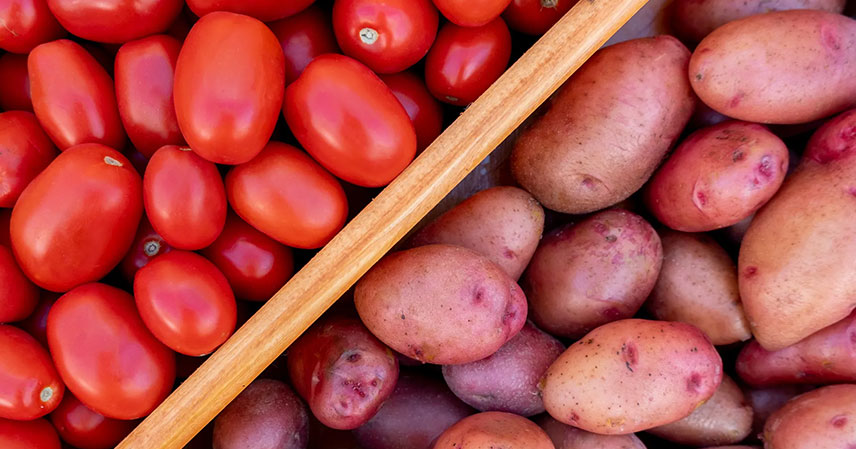For centuries, the humble potato has been a global dietary staple, feeding billions and inspiring countless culinary creations. But the story of this unassuming tuber is far more dramatic and fascinating than you might imagine. Recent groundbreaking research has revealed a surprising evolutionary history, rewriting our understanding of this essential food source.
This blog post delves into the astonishing findings of a new study, unveiling the secrets behind the potato’s remarkable journey from ancient hybridization to its current status as a worldwide culinary icon. Prepare to be amazed by the science and the story behind one of the world’s most beloved vegetables!
What Happened? 📝
Scientists at the Chinese Academy of Agricultural Sciences conducted the most extensive genomic analysis ever performed on potatoes. They studied both cultivated varieties and 44 wild potato species, using advanced genetic sequencing techniques. The results were astonishing: they discovered that the potato, Solanum tuberosum, emerged from an unlikely hybridization event.
This groundbreaking research revealed a stable mixture of genetic material from two distinct ancestors: an ancestor of the tomato (Solanum lycopersicum) and an ancient South American plant from the Etuberosum family. This unexpected pairing produced a plant with a unique ability – the formation of tubers – those energy-storing structures we know and love as potatoes.
The Genetics of a Global Staple 🧬
The study pinpointed specific genes responsible for the potato’s unique characteristics. The SP6A gene, which acts as a “switch” for tuber development, originates from the tomato ancestor. Meanwhile, the IT1 gene, crucial for the growth of the underground stems that form the edible tuber, comes from the Etuberosum family.
This intricate genetic blend demonstrates the power of hybridization in evolution. The combination of genes from these disparate ancestors led to a revolutionary adaptation: the ability to store energy underground as tubers, enabling the potato to thrive in diverse climates and spread across the globe.
A Geological Twist in the Tale ⛰️
The researchers propose a compelling hypothesis about the potato’s origin, linking its evolution to major geological events. During the Miocene epoch (10 to 6 million years ago), the dramatic uplift of the Andes Mountains, caused by tectonic plate collisions, created new, colder climates.
This geological upheaval likely forced plant species to adapt to survive. The hybridization between the tomato ancestor and the Etuberosum plant may have been a crucial adaptation, enabling the resulting potato to flourish in these newly formed, challenging environments.
The Potato’s Impact on Human History 🌍
The potato’s arrival in the Old World had a profound impact on human populations. Studies suggest that its introduction from the Americas accounted for approximately a quarter of the Old World’s population growth between 1700 and 1900. This incredible statistic underscores the potato’s vital role in sustaining and expanding human populations.
From its humble beginnings as a result of an ancient hybridization event, the potato has become a cornerstone of global food security and culture. Its versatility in the kitchen, its nutritional value, and its ability to thrive in various climates have made it an indispensable part of our world.
Key Takeaways 🔑
- The potato originated from a hybridization event between an ancestor of the tomato and a South American plant.
- Specific genes from both ancestors contributed to the development of the potato’s unique tuber-forming ability.
- Geological changes, specifically the uplift of the Andes Mountains, likely played a role in the potato’s evolution and spread.
- The potato’s introduction to the Old World significantly impacted human population growth.
The story of the potato is a testament to the power of evolution, the surprising twists and turns of natural history, and the profound impact a single plant can have on the world. This remarkable discovery not only expands our understanding of plant evolution but also highlights the importance of genetic research in unraveling the mysteries of our food sources.
Source: Science Reveals the Surprising Origins of the Potato



